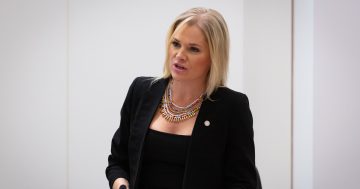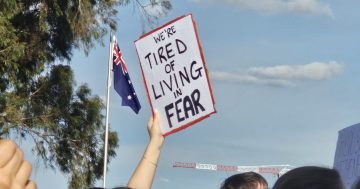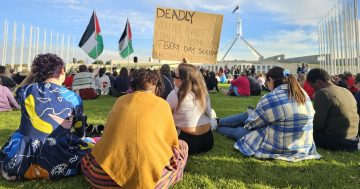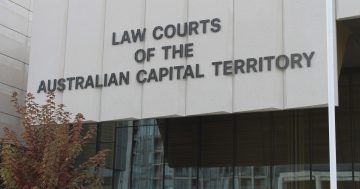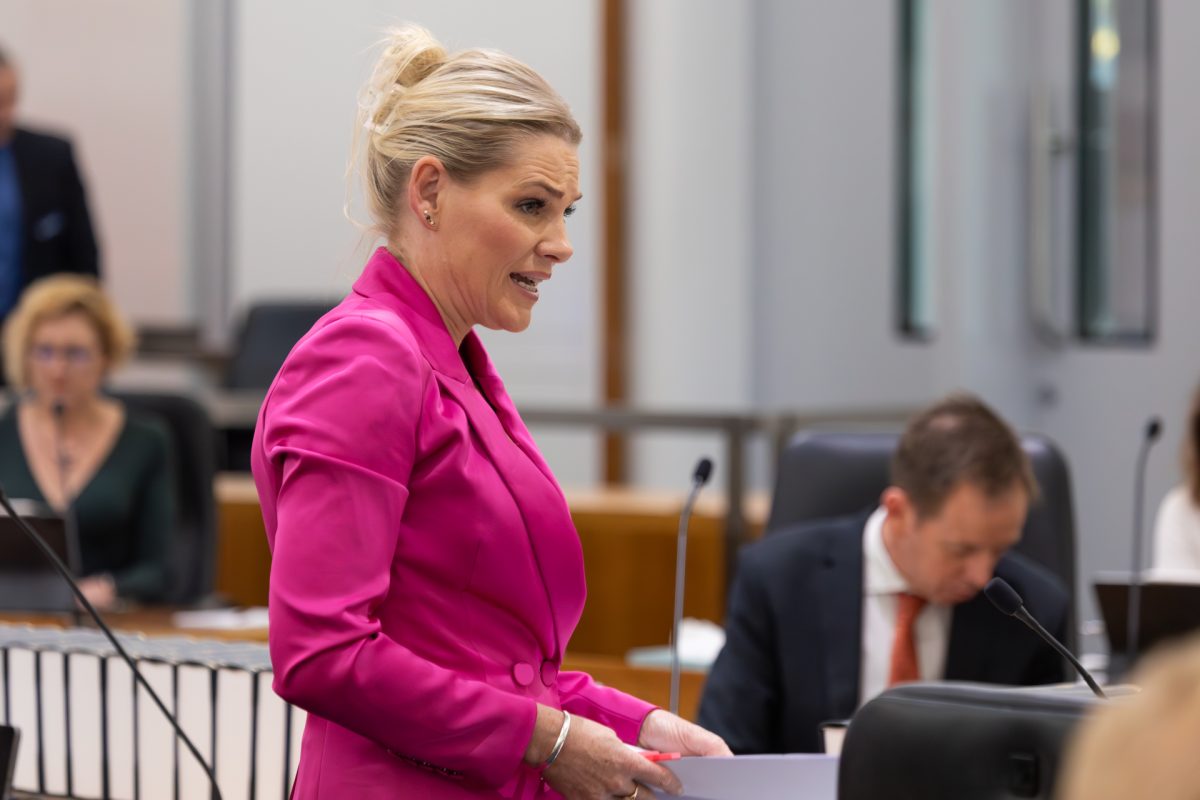
Leanne Castley MLA introduced the new coercive control bill. Photo: Michelle Kroll.
The Canberra Liberals introduced a bill to criminalise coercive control – patterns of abusive behaviour towards a partner or ex-partner over time – into the ACT Legislative Assembly this week.
The legislation would give police and courts more power to prosecute individuals for repeated non-physical forms of abuse – such as threats, intimidation, shaming, stalking and harassing. The maximum penalty under the bill is seven years’ imprisonment.
Leanne Castley, Shadow Minister for the Prevention of Domestic and Family Violence, said the ACT was falling behind other states and territories on the issue.
“NSW, Queensland, Tasmania, Western Australia and South Australia have all either criminalised coercive control or committed to do so,” she said.
“[In Australia], one woman has been violently murdered every four days this year. Ninety-nine per cent of intimate partner homicides are preceded by coercive control.”
The ACT Labor-Greens Government expressed in-principle support for criminalising coercive control in 2021, but have not put legislation forward, stating it wanted to “go slow” and first educate the community and frontline services on the issue.
Ms Castley would need the support of either Labor or the Greens for her bill to become law. If successful, it would not come into effect for 12 months – giving the ACT Government time to implement an education campaign for police, legal services and the community on what coercive control means and how the legislation would work.
She said examples of coercive control included physical violence or abuse, coercion to engage in sexual activity, reproductive coercion such as forcing pregnancy or denying birth control, verbal abuse, shaming or degrading, harming or threatening to harm a child, threatening self-harm or suicide to torment and manipulate, damaging property, stalking or harassing.
“These forms of abuse are often not physical and as we speak cannot be effectively dealt with by family violence orders or police,” she said.
Feminist not-for-profit association Canberra YWCA has expressed support for the bill.
“YWCA Canberra is not alone in supporting this legislative reform,” CEO Frances Crimmins said. “We know through the 2022 Monash University survey of nearly 1300 survivors of domestic violence that survivors overwhelmingly support criminalisation.”
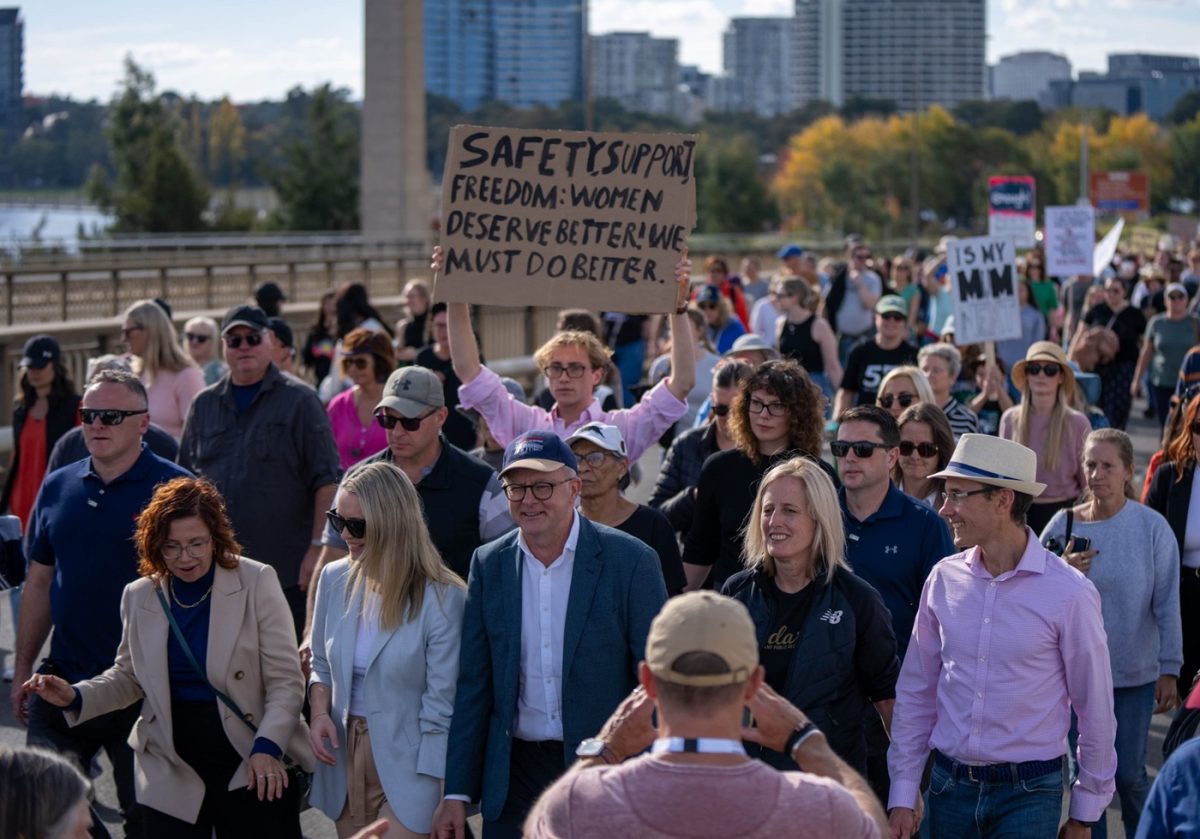
A rally in Canberra earlier this year calling for action on domestic violence. Photo: Anthony Albanese Facebook.
Union representative body the Australian Federal Police Association (AFPA) has also backed the proposed new law.
“Coercive control is abhorrent and insidious; stronger legislation is needed to combat it, and we welcome the private member’s bill from the Canberra Liberals,” AFPA President Alex Caruana said.
“Statistically, we believe that coercive control offences are underrepresented and underreported in the ACT as there is no specific offence defined for this type of crime. While we acknowledge that elements of coercive control can be addressed by the current legislation, we strongly believe that it needs to be recognised as a standalone offence.”
Ms Castley’s bill will be debated in the Legislative Assembly in August.
The 2024-25 ACT Government Budget has set aside more than $12 million in additional funding to address domestic, family and sexual violence as incidents continue to increase in Canberra and across the country.
Anyone impacted by sexual, domestic or family violence can contact 1800RESPECT on 1800 737 732 or Full Stop Australia on 1800 385 578.
Local support services include the Canberra Rape Crisis Centre on 6247 2525, the Domestic Violence Crisis Service (DVCS) on 6280 0900, and Victim Support ACT on 1800 822 272 or 6205 2022.
If this reporting has raised mental health concerns for you, call Lifeline on 13 11 14.












